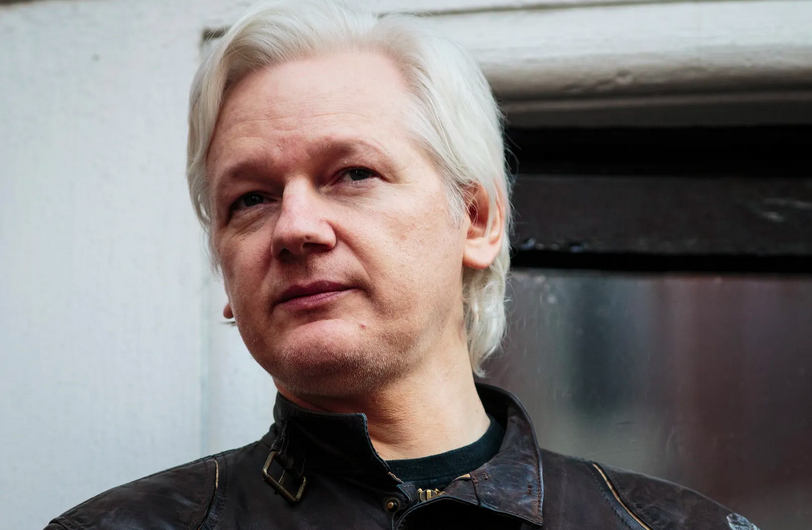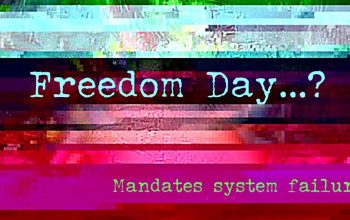(Originally Published on January 5, 2021)
Ten years ago, President Joseph R. Biden, Jr. referred to Founder and former Editor-in-Chief of Wikileaks Julian Assange as a “high-tech terrorist.” Saying this, Biden located himself within one of the more potent, but entirely unsound anti-Assange narratives. This mythical line of thinking, originally motivated by notions that Assange was a facilitator of terrorism against the United States, remains prevalent to this day. It motivates either implicitly or explicitly so many governments’ libelous, defamatory, and violent pursuits of Assange.
In February 2010, Wikileaks began releasing a voluminous trove of classified documents too many members of the American establishment suspiciously over-emphasized contained the identities of informants overseas. In July of that year thru September 2011, and eventually as a result of a series of unfortunate and unforeseen events, not immediately related to any control Assange had over the execution of what ultimately became known as “Cablegate,” Wikileaks released the entirety of the trove.
Initially, all went according to plan. In an agreement with news publications El Pais, Der Spiegel, Le Monde, The Guardian, and The New York Times, Wikileaks released an assortment of classified documents, redacting the identities of all informants mentioned within the originals. However, in February 2011, David Leigh of The Guardian published within a book the passcode used to access the remaining documents, after he had mistaken that passcode as temporary.
To make matters worse a few months later in August, Der Freitag, a German weekly, published details pertinent to accessing the files, as well. As a result, and through no fault directly or entirely of Assange’s, over 250,000 diplomatic cables surged across the globe online in unredacted form for consumption by the worldwide public. Only after this did Wikileaks release all of the diplomatic cables in unredacted form. But it cannot be emphasized enough that Assange went to great lengths at this time to mitigate the possible fallout from revelations about the informants’ identities. At one point, Assange contacted the Department of State, insisting on speaking directly with former Secretary of State Hillary Clinton and saying, “unless we do something, people’s lives are put at risk.”
Hours passed before Assange received a call back. An attorney for the Department of State, and not Secretary Clinton, spoke with Assange during that phone call, saying that the State Department could not assist Wikileaks in attenuating the possibility of lethal fallout stemming from the leak. None of the newspapers involved at any stage of “Cabletgate” did as Assange did. The onus of precluding the possible fallout was left to Assange, who handled this situation in a way that was emblematic of humanitarian concern for the lives of those so many Obama administration officials later urgently claimed were put at imminent risk as a result solely of Assange. But I ask: what about the other newspapers? This question is often referred to as “The New York Times Problem,” which led the Obama administration to terminate its pursuit of Assange. Recognizing that criminalizing Assange would necessitate criminalizing all of the other publications that released the diplomatic cables before Wikileaks did, the Justice Department under Obama, led at that time by Attorney General Eric Holder, observed the need to refrain from seeking Assange’s extradition. Despite this obviously sound line of reasoning, the Trump administration so disgustingly has pursued Assange in recent history. While a total of 17 different organizations published the unredacted portions of the diplomatic cables, only Assange is now facing the possibility of 175 years in solitary confinement in the United States.
Recently, former presidential candidate Marianne Williamson contacted me to ask why Assange ever released the unredacted documents, saying that his doing so, “did not do much for his case.” While Williamson has asserted the need to dismiss the charges against Assange, she raises an interesting question–a question that draws attention to distorted opinions of Assange’s motivation in releasing the unredacted portions of the diplomatic cables. Indicating how noble Assange’s intentions were in releasing the unredacted portions of the documents, Pulitzer Prize-winning author Glenn Greenwald once wrote in an article for Salon.com, “Facts and myths in the Wikileaks/Guardian saga:”
“Once WikiLeaks realized what had happened, they notified the State Department, but faced a quandary: virtually every government’s intelligence agencies would have had access to these documents as a result of these events, but the rest of the world — including journalists, whistleblowers and activists identified in the documents — did not. At that point, WikiLeaks decided — quite reasonably — that the best and safest course was to release all the cables in full, so that not only the world’s intelligence agencies but everyone had them, so that steps could be taken to protect the sources and so that the information in them was equally available.”
In other words, Assange released the unredacted portions of the documents in order to protect the lives of those the American government claimed he jeopardized. He did not release the documents recklessly or with the intention of causing harm to anyone.
Despite how responsibly Assange handled the situation, as Greenwald argues in “Facts and myths in the Wikileaks/Guardian saga,” entities across the political spectrum in the United States claimed that Assange had “blood on his hands,” alleging he had put the informants mentioned within the diplomatic cables at risk of lethal retribution by international terrorist organizations and authoritarian governments seeking revenge on those that cooperated with the United States. Figures across the Obama administration from former Secretary of State Hillary Clinton to former Chairman of the Joint Chiefs of Staff Adm. Mike Mullen alleged Assange’s sanguinariness. But it wasn’t just within the Democratic establishment that the notion of Assange as a criminal interested in killing innocents became commonplace. 2008 vice-presidential candidate Sarah Palin added to this anti-Assange rhetoric, asserting at one time that Assange was “an anti-American operative with blood on his hands.” Following that up by asking, “Why was he not pursued with the same urgency we pursue al Qaeda and Taliban leaders?” Palin lumped Assange in with terrorists easily understood as such by most of the American public. The comparison is entirely unfair, and it is interesting to note that Palin as of late has been a supporter of dismissing the charges against Assange.
Roughly ten years later, in and following the superseding indictment released against Assange long before the ruling on Monday, 4 January 2021 in the United Kingdom, the Department of Justice continues to forward this myth about the Australian anti-secrecy radical. Influenced by how the Obama administration prosecuted more whistleblowers than all other administrations combined, President Trump’s hatred of the news media community, and a variety of other factors, politicians across the political spectrum these days also demonize the radical as a facilitator of violence against the United States.
At the same time, news media outlets, in many respects regardless of their political orientation, distort assignment of culpability in regard to Assange and the complete and ultimate release by Wikileaks of the diplomatic cables; all too often it is forgotten that so many other well-respected and prestigious news publications did just as Wikileaks did. And then of course it has conveniently fallen out of focus that Assange ardently attempted to mitigate the possibility of fallout from “Cablegate,” while no other organizations involved in “Cablegate” did in the way that Assange did. And so the myth of Assange as a terrorist has gained egregious momentum, while it may not always be the case that the word “terrorist” is explicitly used in reference to him.
While the superseding indictment, comprised of 17 charges against Assange of violating The Espionage Act of 1917 and one charge of violating The Computer Fraud and Abuse Act, does not specifically charge Assange with having committed an act of terror, the myth of Assange as such an actor is alive and well. It has been a myth used to brainwash the public into supporting Trump’s violent pursuit of a journalist—an assault on constitutionally guaranteed protections for the press, one of the most fundamental tenets of a democratic republic and a liberal democracy.
13 April 2017 Director of the CIA Michael Pompeo referred to Assange as a “darling” of jihadist groups and to Wikileaks as a “non-state hostile intelligence service.” Speaking as the newly appointed CIA Director that day, Pompeo was addressing a crowd at Center for Strategic and International Studies in Washington, DC., and his remarks seemed to be a response to the release of the first part of Vault 7, a series of documents disseminated by Wikileaks revealing problematic and legally suspect practices within the American intelligence community. And let us not forget that President Trump, who appointed Pompeo, repeatedly exclaimed during his first run for President in 2016, “I love Wikileaks.”
From 2017 thru the present, this myth has only gained more and more ground. 11 April 2019, the day Assange was arrested by British authorities and dragged from The Ecuadorian Embassy in London, Wired.com released “Breaking Down the Hacking Case Against Julian Assange,” in which journalist Andy Greenberg wrote:
“[New York City-based attorney Tor] Ekelund also points out that to expand the statute of limitations for the CFAA from the normal five years to the necessary eight in this case, given the indictment’s date of March 2018, the Justice Department is charging Assange under a statute that labels his alleged hacking an “act of terrorism.”
More recently on 12 September 2019, Kevin Gosztola of Shadowproof.com interviewed each of the presidential candidates about their attitudes towards Assange. While some flat out claimed they would drop the charges, such as Senator Bernie Sanders and the aforementioned Marianne Williamson, others such as President Biden, obliquely answered the question, while still indicating their disdain for Assange, again claiming that Assange had put lives at risk. Recall, however, that it was established earlier herein that Assange was not the sole and was indeed the last agent to disseminate the unredacted portions of the diplomatic cables. Undue emphasis on his culpability is problematic, as a result. On top of that, it is important to remember that no evidence of harm done to informants has ever been documented. In the article by Greenwald cited earlier, the former co-founder of The Intercept testifies to this, when he writes:
“Recall that Adm. Michael Mullen and others accused WikiLeaks of having “blood on its hands” as a result of publication of the Afghan War documents, but that turned out to be totally false; as Shane noted today in the NYT: ‘no consequence more serious than dismissal from a job has been reported.’ Even Defense Secretary Robert Gates mocked claims about the damage done by WikiLeaks as “significantly overwrought.”
But let’s make the following clear: the superseding indictment alleges violations of espionage and hacking laws, while it does not explicitly enumerate charges of terrorism. Nevertheless, against the backdrop of the portrait our government and media have painted of Assange and embedded within the charges of espionage and espionage-motivated hacking crimes, there is an implied charge. That charge, perhaps necessarily and inextricably related to the disruptive, dissident, and occasionally even violent essence of espionage, is that Assange is a dangerous criminal mastermind of global proportions in cahoots with terrorists and to varying degrees involved in the deaths of innocent people. The absence of charges in the superseding indictment explicitly organized around allegations of terrorism are also interesting insofar as it likely indicates that our government itself appreciates the illegitimacy of charging Assange with acts of terror; teams of lawyers at the Department of Justice, led by William Barr up until recently, likely understood that substantiating their arguments for Assange’s extradition with charges of terrorism was not going to yield their desired result. In other words, it seems the D.O.J. probably recognizes the myth of Assange as terrorist as absurd.
What must be emphasized again is that no evidence of deaths amongst the global community of informants has been documented in the wake of “Cablegate.” And members of the Obama administration were fully willing to speak publicly on this lack of evidence. For example, former Secretary of Defense Robert Gates at one time spoke to this issue, ultimately claiming that “Cablegate” was nothing more than an embarrassing nuisance. It is of equal importance that Assange has never exhibited the intention to cause violence against anyone, let alone the informants mentioned in the diplomatic cables. He is guided in part by the principled notion that freedom of information is a powerful way to foster peace. In fact, he once said, “If wars can be started by lies, peace can be started by truth.”
So, what is terrorism, and what is a terrorist? To dispel the ludicrous notion that Assange is such a criminal, it is necessary to define what such an actor is, and then disqualify Assange of the elements of that designation.
In an interview on the day British Judge Vanessa Baraitser blocked Assange’s extradition, 4 January 2021, I spoke with Egypt’s Rapporteur on the Rule of Law, Professor Mohamed A. ‘Arafa, SJD on legislative and judicial treatments of terrorists both within The United States and The United Kingdom. A professor of Law at Alexandria University in Egypt and an adjunct Professor of Law at Cornell Law School, Professor Arafa revealed that, to synopsize what he said during our interview by quoting an article he co-authored on terrorism, “The U.S. government alone employs 22 different definitions of terrorism,” all of which to varying degrees indicate terrorism as a behavior involving conduct geared towards the perpetration of illegal violence. In other words, given the volume of definitions, the legal identification of terrorists within American judicial bodies tends to be convoluted. In addition, as Professor ‘Arafa has written, the legal definition of terrorism in the United Kingdom, found within the Prevention of Terrorism (Temporary Provisions) Act 1974 (PTA) Section 14(1) of the PTA 1974, is “the use of violence for political ends, and includes any use of violence for the purpose of putting the public or any section of the public in fear.”
With the immediately aforementioned in mind, let us ask: during his tenure at Wikileaks, did Assange embody all of the above-enumerated elements of a legally recognized terrorist? And against the backdrop of this, does precedent in the British extradition system and in the United States criminal justice system afford one a legally sound basis for recognizing Assange as a terrorist in an application of the statutory definitions of terrorism. As precedent, the extradition trial of Abu Hamza al-Masri is indispensable and uncompromisingly relevant to further debunk the myth of Assange as terrorist, as well. Hamza’s conduct emblematized terrorism, both within the United States and the United Kingdom. The opinion that Hamza is a quintessential terrorist also characterizes many entities’ attitudes toward him across the globe. Professor Arafa suggested the validity of such a comparison during our interview, suggesting that it was an effective way to raze to the ground the myth of Assange as terrorist.
An Egyptian-born Imam extradited from the UK to the US on charges that he committed 11 acts of or relating to terror against the United States, Hamza preached Islamic Revivalism at Finsbury Park Mosque in London, England, where he was a naturalized citizen. The 11 charges for which the United Kingdom extradited him and of which the United States convicted him involved: (1) aiding terrorist plots in Yemen that resulted in the deaths of hostages; (2) working towards the establishment of a terrorist training camp in Bly, OR.; and, (3) facilitating violent jihad in Afghanistan.
Much attention was drawn in the first set of charges to how Hamza had provided the hostage-takers in Yemen with access to a satellite phone, telephonically providing advice to the hostage-takers in real time as to how to perpetrate the hostage-taking. Not too long thereafter in a recorded conversation, Hamza also claimed that hostage-taking was “a good thing” under Islam.
In regard to the second set of charges, the Islamic Revivalist was convicted of sending a member of his circle from the UK to the US to plan out and construct the terrorist training camp in the Pacific Northwest. And in regard to the third set of charges, Hamza was found guilty of remotely organizing jihadist training camps in Afghanistan, while also ultimately providing “goods and services” to the Taliban there, to quote the official statement released by our government following Hamza’s sentencing in the U.S.
Given that Hamza was extradited on convictions of acts of terror in 2012 from the United Kingdom (the same jurisdiction where Assange’s extradition was just blocked) to the United States (the same jurisdiction where Assange would have ended up had his extradition not been blocked) and given that it is commonly recognized that Hamza is the most high-profile non-state actor extradited from the UK to the US on charges of terrorism, shouldn’t we contrast Hamza’s crimes with Assange’s so-called and alleged ones?
While Assange was not charged with terrorism in the superseding indictment, it is still cultural, legal, and political folklore in America that Assange either really was and is a terrorist or at least functions in the same capacity as a terrorist. But to re-iterate, no evidence of harm to the informants, whose identities were revealed in the diplomatic cables first by many news publications and only then by Wikileaks, has been documented. And Assange was neither motivated by homicidal malice nor caused the deaths of innocents. It goes without saying that Hamza is the opposite.
Let’s recall that Assange was tried for extradition on charges that he committed 17 violations of The Espionage Act of 1917 and one violation of the Computer Fraud and Abuse Act. Nevertheless, the publishing conduct in which he engaged with Wikileaks was never violent. In the context of Professor Arafa’s observations about the definitions of terrorism and against the backdrop of precedent set in the case of Hamza, Assange is definitely not a terrorist, while Hamza is. Yet, however, it is interesting that Hamza is now rotting in solitary confinement at the same supermax prison where Assange may still ultimately end up, ADX Florence in Florence, Colorado, so frequently called America’s worst prison.
While Assange has been identified as a terrorist either implicitly or explicitly over the last decade, it is both disturbing and interesting to observe that his behavior, identical to that of every other national security and government intelligence journalist and every editor of so many news publications across the globe, seems to be tantamount in our government’s eyes to terrorism.
Activist Ralph Nader once wrote, “Information is the currency of power.” In all of his activism around freedom of information, Assange has meant to empower vulnerable peoples that are subject to abusive regimes. By contrast, in trying to take down the quintessential journalist emblematizing the democratic power of information freedom, our government is again demonstrating it is only interested in suppressing our power and that of so many people across the globe. To characterize Assange as a terrorist, either implicitly or explicitly, brings with it a dangerous consequence, which is to make anathema and illegal the practice of journalism. It also seems that our government feels journalism is even a means by which someone can perpetrate crimes against humanity.
Donate Crypto Directly to the Author’s Crypto Wallets:
Bitcoin: 3Nr9JLzTE5oNra5C3uX2kKu7PJRMAsds81
Ethereum: 0x1df0186BE7AF23375ec48bF6F153fEF38235F89A



